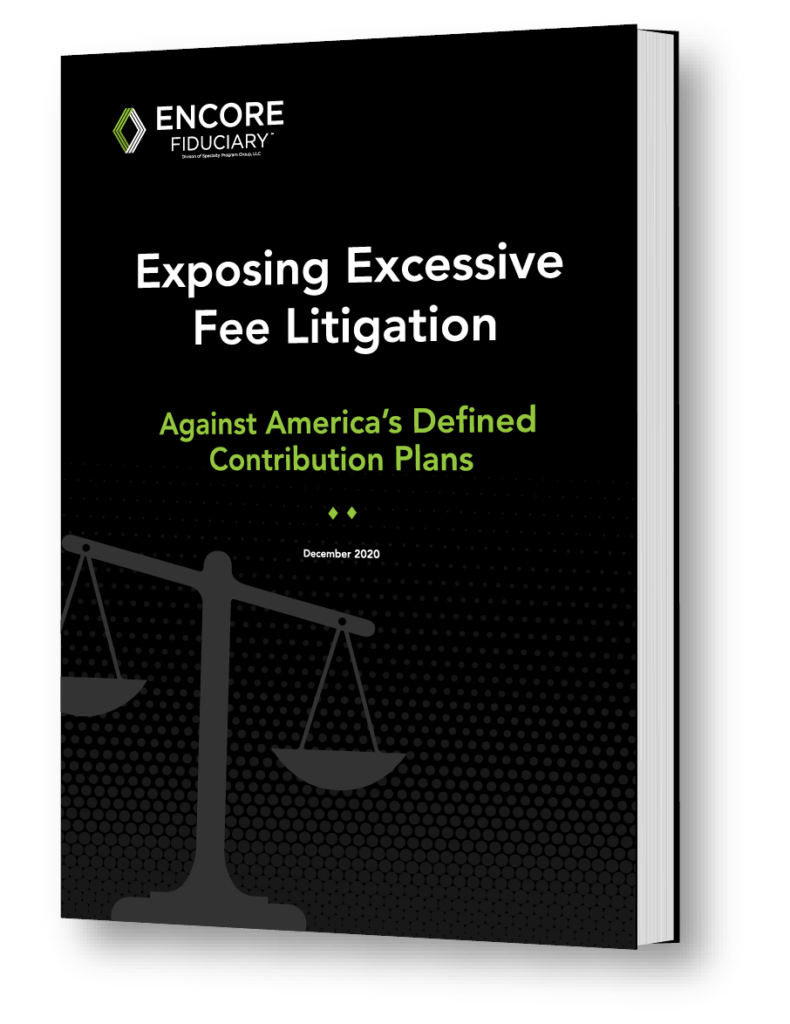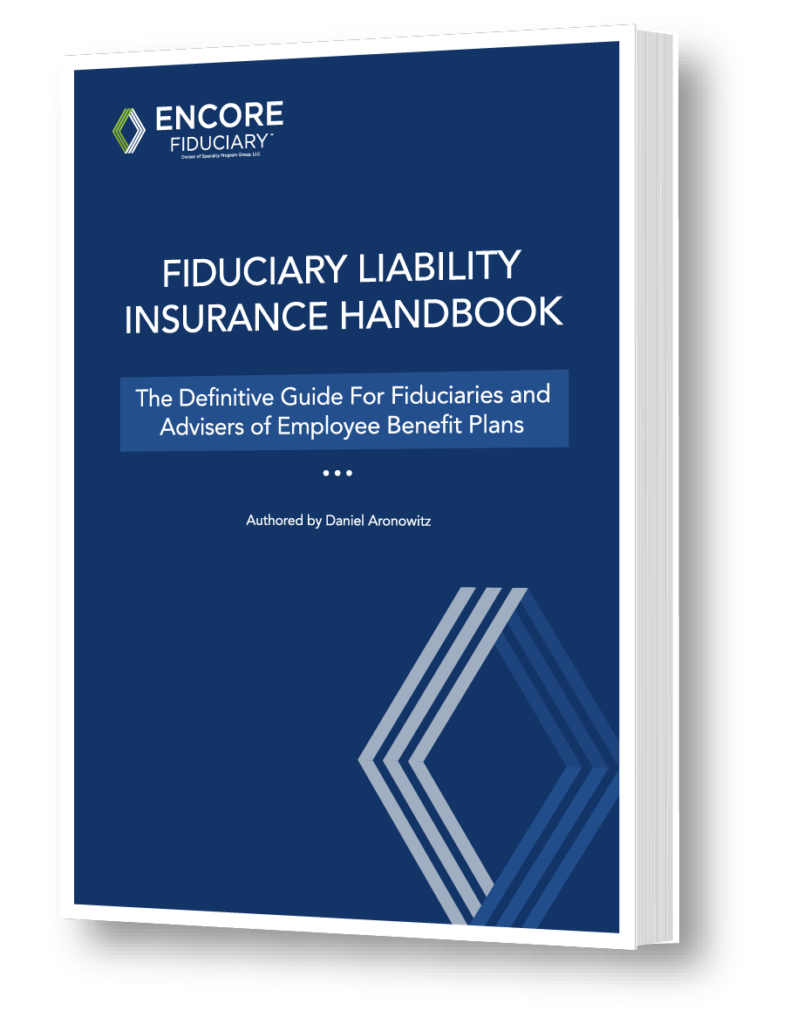By Daniel Aronowitz
Many of the initial excessive fee lawsuits raised issues in which plan fiduciaries arguably could have negotiated lower recordkeeping or investment fees. We have argued that many of these cases used misleading and prejudicial benchmarks, and should not result in fiduciary liability. But if the recent case of Sigetich v. The Kroger Co., Case 1:21-cv-00697-SJD filed in the Western District of Ohio on November 5, 2021 is any indication, we have reached a turning point in which plaintiffs have started suing plans with really low fees. The complaint alleges that the Kroger 401k Plan had a $30 recordkeeping fee, which they claim is 50% too high, but in reality is lower than nearly every plan in America today. The case shows how the Supreme Court needs to step in and halt the ability of the plaintiffs’ bar to impose improper liability on the fiduciaries of America’s retirement plans, absent legitimate proof of real fiduciary imprudence and harm to participants. If the Kroger plan can be sued with a low recordkeeping fee, then every plan sponsor in America is at risk of being sued, and ERISA is no longer the fiduciary law that Congress intended.
The Kroger Recordkeeping Fees
The Kroger Co. 401(k) Retirement Savings Account Plan is alleged to have $5.9 billion in assets with 92,210 participants in 2019. [Euclid Note: The 2019 Form 5500 on file with the Department of Labor has 92,210 participants with account balances, but the total number of active participants at the end of the plan year is much higher – at 119,807. The additional 27,000+ accounts are still the responsibility of the recordkeeper, and cannot be ignored, especially if you are claiming excessive fees on a per participant basis.] After the typical defined contribution fee lecture found in excessive fee lawsuits, paragraph 93 of the complaint levies its core allegation that the recordkeeping fee is purportedly too high with this chart:
Retirement Plan Services (RPS) Fees
| 2015 | 2016 | 2017 | 2018 | 2019 | Average | |
|---|---|---|---|---|---|---|
| Participants | 83,482 | 79,408 | 79,408 | 90,005 | 92,210 | 87,010 |
| Est. RPS Fees |
$2,504,460 | $2,382,240 | $2,698,290 | $2,700,150 | $2,766,300 | $2,610,288 |
| Est. RPS Per Participant |
$30 | $30 | $30 | $30 | $30 | $30 |
Plaintiffs do not explain where they got these numbers. These numbers would not appear on the participant 404a5 participant disclosure, and the 2019 Kroger Master Trust Form 5500 filing showed $6,161,111 in direct compensation to Merrill Lynch. This includes fees beyond recordkeeping, including significant transaction fees. The Form 5500 direct compensation number is usually what plaintiff firms use to overstate recordkeeping fees, but the Form 5500 number was not used. The only legitimate place where this number could be verified is on Merrill Lynch’s quarterly 408b2 plan fee disclosure, which was not cited or attached to the complaint. But again, because the plaintiff assumes the court will not require any evidentiary rigor or legitimacy, the complaint does not even pretend that the number is derived from the 408b2 plan fee disclosure. Thus, we cannot presume the number is correct until it is validated. But for purposes of this commentary, we will assume it is correct. [Euclid Note: If you use the more correct active participant total for 2019 of 119,807 divided by the purported $2,766,300 recordkeeping fees, the more accurate per participant recordkeeping fee is $23.09. Facts matter, as this simple arithmetic shows].
The complaint then inserts a table to “illustrate[] the annual recordkeeping fees paid by other comparable plans of similar sizes with similar amounts of money under management, receiving a similar level and quality of services.”
Comparable Plans’ Recordkeeping Fees Based on Publicly Available Information
| Plan | Participants | Assets | RPS Fee | RPS Fee/pp |
Recordkeeper |
|---|---|---|---|---|---|
| Kaiser Permanente Savings and Retirement Plan |
47,358 | $3,104,524,321 | $1,298,775 | $27 | Vanguard |
| Fidelity Retirement Savings Plan |
58,163 | $16,119,398,751 | $814,282 | $14 | Fidelity |
| Sutter Health 403(b) Savings Plan |
73,408 | $3,681,162,013 | $1,908,133 | $26 | Fidelity |
| Google LLC 401(k) Savings Plan |
82,725 | $11,786,824,293 | $1,676,4145 | $20 | Vanguard |
| Kroger Plan Average Fee |
87,010 | $4,763,655,000 | $2,610,288 | $30 | Merrill Lynch |
| Marriott International, Inc. Employees’ Profit Sharing Retirement and Savings Plan and Trust |
115,501 | $7,660,619,525 | $2,636,322 | $23 | Alight |
| Apple 401(k) Plan |
115,686 | $7,400,046,748 | $2,114,871 | $18 | Great-West |
| Lowes 401(k) Plan |
154,402 | $5,619,838,861 | $2,856,437 | $19 | Wells Fargo |
From this chart of seven purportedly “similar” plans, plaintiffs allege in paragraph 100 that “compared to other plans of similar sizes with similar amounts of money under management, receiving a similar level and quality of services, had Defendants been acting in the best interests of the Plan’s Participants, the Plan actually would have paid on average a reasonable effective annual market rate for recordkeeping of approximately $1,740,192 per year in recordkeeping fees, which equates to approximately $20 per participant per year.” According to plaintiffs, “a hypothetical prudent plan fiduciary would not agree to pay 50% more than what they could otherwise pay for recordkeeping.”
Plaintiffs also allege that the Merrill Lynch fee disclosures fail to accurately disclose plan investments fees. But essentially the entire case is that plaintiffs found seven plans out of the entire universe of 695 plans with $1B or more in assets that have lower recordkeeping fees. The chart is really only six plans with purportedly lower fees, because the citation to the Fidelity plan is not the recordkeeping fee that Fidelity charged its own employees in its own sponsored plan. Instead, it is an expert opining as to the cost to Fidelity for recordkeeping its own plan. And needless to say, Fidelity is the nation’s leading recordkeeping for large plans.
Excessive Recordkeeping Fallacies
There are at least two glaring fallacies in plaintiff’s allegations: (1) plaintiff failed to make an apples-to-apples comparison of the level and quality of recordkeeping services; and (2) failed to provide a proper benchmark for what the universe of large plans pay for recordkeeping services.
(1) Lack of Comparison of the Level and Quality of Recordkeeping Services: Complaint has no support for the proposition that the level and quality of services are “similar” between the Kroger plan and the seven other random plans cited in the Complaint. The continued arrogance of the plaintiffs’ bar assumes that district courts will not perform a careful, context-specific scrutiny of the complaint. Instead, they know that up to 75% of all courts will give lip service to the Iqbal and Ashcroft motion to dismiss standard, and assume all facts that plaintiffs allege are true, and allow the case to proceed to discovery. The Kroger complaint is like many other cases that baldly allege “similar” services without any attempt to explain actual recordkeeping services at all. They assert that recordkeeping is a commodity with no service variables. But that is not true, as there are different levels of service. The key differentiator that affects cost is the level of participant education. A retail company like Kroger likely needs a higher level of service with more participants and a higher need for high-quality participant education. Kroger retail employees are not the same as doctors at Kaiser Permanente or engineers at Google and Apple. But district courts often set a low bar for alleging fiduciary incompetence, and plaintiff here has not bothered to even try to compare level of services – they just claim the services are “similar,” assuming the court will presume that is true. They may end up being right that the district court judge will allow a complaint without evidence, but that doesn’t mean the courts are following the requirement to review complaints with careful context scrutiny. It just shows that the judicial system is broken.
(2) Cherry-Picking of Lowest Cost Plans is Not Evidence of Fiduciary Imprudence: The second fallacy of the Kroger Complaint is that cherry-picking seven plans with super low-cost recordkeeping fees is not a legitimate statistical comparison of the true market for recordkeeping of large plans. We have to caution that the there is no reason to believe that the recordkeeping fees of the seven companies in the chart are correct, because most excessive fee complaints have false and contrived facts. And as we demonstrated earlier, the recordkeeping fee based on active participants of the Kroger plan itself is likely close to the $20 purported benchmark. But data from seven random plans is not evidence of fiduciary imprudence. There are at least 695 plans with $1B or more in assets, and the recordkeeping fees of seven arbitrary plans does not demonstrate statistical proof. Plaintiffs do not offer a reliable benchmark study of $1B plans demonstrating that the proper recordkeeping fee is $20 for mega plans, because there is no such proof. Plaintiffs may have found seven plans with super-low recordkeeping fees, but that only proves that there are seven plans with super-low recordkeeping fees. That is it – nothing more.
Plaintiffs have not given a recordkeeping study that validates their $20 recordkeeping target for $2B+ plans, because it does not exist. Euclid underwriters spend our days in the unglamorous task of reviewing plan fee disclosures, and a $30 recordkeeping fee is really low for the Kroger plan. Only a few plans in the entire universe of 800,000+ plans in America have recordkeeping fees on a per participant basis below $30 – likely less than 25 plans in the entire country have lower recordkeeping fees than the Kroger plan. Based on Euclid’s review of thousands of plans, the range of recordkeeping fees for mega plans [$1B+/10,000 participant+] is between $25-75 per participant, and sometimes even higher. The fact that plaintiff’s counsel found seven plans with $20 recordkeeping fees is evidence of nothing other than there are a few plans in the universe of large defined contribution plans that have slightly lower fees. Plaintiffs do not allege any reliable evidence that the Kroger fiduciaries acted imprudently with a $30 recordkeeping fee. Euclid’s experience is that the Kroger plan has one of the lowest recordkeeping fees in the entire market for mega plans.
Comparison to the Northwestern Case: In the Northwestern case pending before the Supreme Court, the leading Schlichter law firm alleges that the Northwestern plan fiduciaries acted imprudently in a $2.34B plan with 21,622 participants by hiring two recordkeepers and paying $2.3m to $4.1m for recordkeeping services, equivalent allegedly to $153-213 per participant. Without proof or comparison, he claims that a reasonable recordkeeping fee would be $1.05m or $35 per participant. We have written extensively on this case [see here: https://encorefiduciary.com/wp-content/uploads/2021/08/Euclid-Specialty-The-Pleading-Standard-for-Excessive-Fee-Lawsuits_August-2021.pdf], and even filed an amicus brief in the Supreme Court in the Hughes v. Northwestern case. We would concede that there is some argument that a $150+ recordkeeping fee may be too high. And there may be a fair argument that multiple recordkeepers is sub-optimal, even for 403b plans. Persuasive arguments have been made on both sides. We have never felt that it constitutes actionable fiduciary imprudence. But it is one thing to allege that $150+ recordkeeping per participant is too high, and quite another to allege that $30 is still too high – levels five to seven times lower than the Northwestern plan, and lower than the purported $35 Schlichter standard that is now pending before the Supreme Court.
The Euclid Perspective
To the extent there may have been any merit in the initial excessive fee lawsuits, we have reached a dubious inflection point in recent cases like the Kroger case. If plaintiffs are allowed to sue plan fiduciaries for low $30 recordkeeping fees, then every plan in America is at risk of being sued. The plaintiffs’ bar has hijacked ERISA for a business model designed to profit off systemic weakness in the federal court system. ERISA was never designed to turn federal courts into referees to judge how low recordkeeping and investment fees must be. Like most large plans in America, the fees for the Kroger plan are lower than nearly every small defined contribution plan in the country. The Kroger fees are even low for large plans. If the goal is to leverage their size, that has been accomplished. The Kroger case is an “excessive” fee lawsuit without a valid claim of excessive fees. We have reached a point of diminishing returns, which casts doubt on the entire excessive fee litigation industry.



